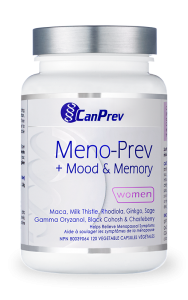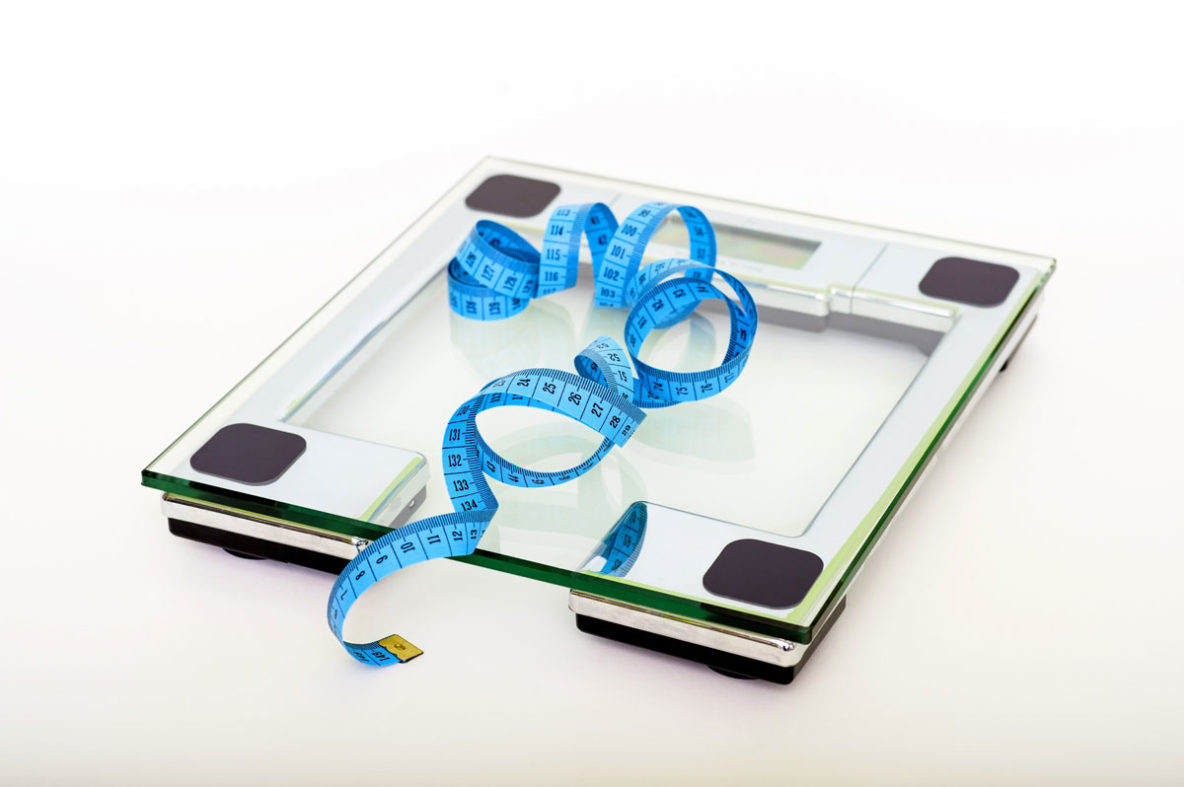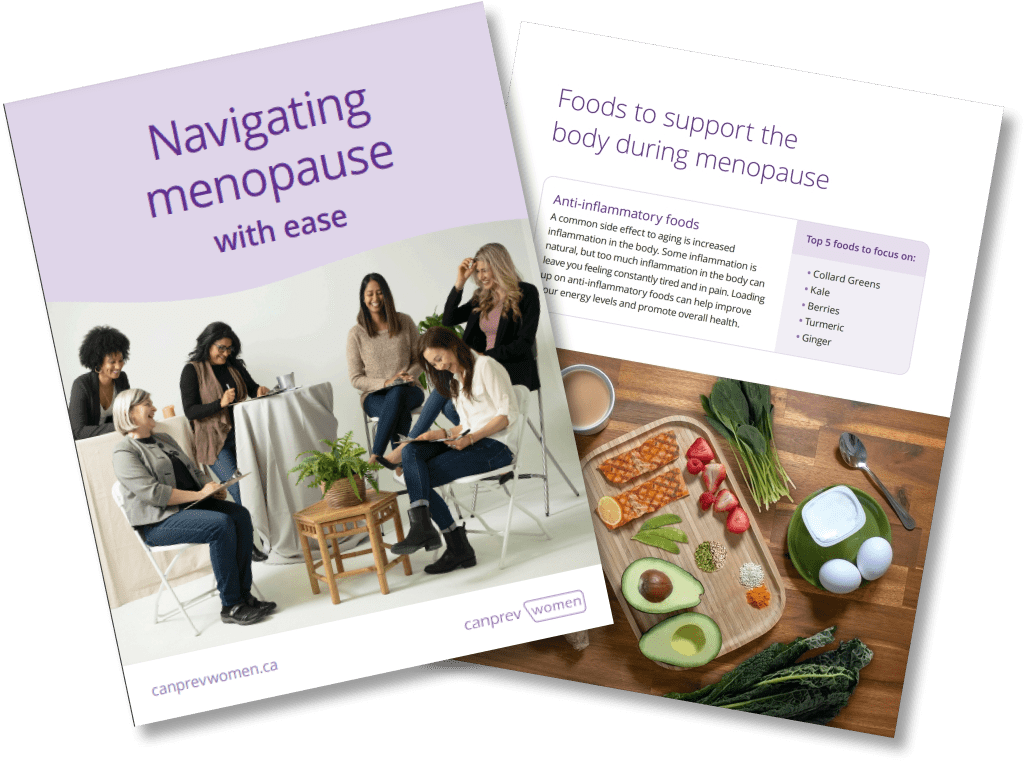Are you heading into menopause, and wondering how to stay in shape? If the pounds have been slowly packing around your middle, despite your exercise routine and healthy diet, you may be wondering why this is happening.
Most women experience weight gain in the years leading to menopause during the period known as perimenopause. This transition period can last anywhere from 2 to 12 years, and throughout this time, the body undergoes a series of changes. However, it’s possible to prevent perimenopausal weight gain with a few easy steps.
Perimenopause, menopause and postmenopause
Women typically enter the period of perimenopause between the ages of 40-59, which signals the menopausal transition. Perimenopause is marked by the gradual end of the reproductive cycle. The ovaries start releasing less estrogen, and eventually stop releasing eggs. The menopausal transition may be marked by common symptoms, such as:
- Hot flashes
- Night sweats
- Weight gain
- Irritability & mood swings
- Low libido
- Anxiety & depression
Perimenopause ends once menopause begins, which is marked by the completion of 12 consecutive months without a menstruation. Once 12 months passes without a period occurring, women enter the stage known as post-menopause, where many menopausal symptoms tend to abate and retreat.
Why is weight gain common during menopause?
The average weight gain in perimenopausal women is about five pounds, but many women have reported gaining 10-15 pounds or more, with most of it being belly fat.
There are a few reasons for this sudden increase in weight and body fat composition. A gradual slowing of your metabolism makes it easier to retain weight, and harder to lose it once it’s gained. As a result of a slowed metabolism, you may be less inclined to exercise. However, changes in estrogen levels may also play a role in menopausal weight gain.
Estrogen and menopausal weight gain: Is there a connection?
During the reproductive years, the hormone estrogen plays a vital role in fat storage and distribution. Prior to menopause, estrogen ensures that fat stays stored in your thighs, hips and buttocks. Estrogen contributes to this ‘feminization’ of the body, the same way testosterone contributes to masculine features like facial hair and muscle mass. But during and after menopause, a drop in estrogen production leads to a change in lipid and glucose metabolism. This changes how your body digests fat and sugars, which leads to an overall increase in total body fat that tends to remain in your midsection. This can be addressed with mindful exercise. and the right supplementation.
Benefits of exercise during menopause
 By adopting a regular exercise routine, you’ll not only promote healthy weight loss, but reap countless other health benefits too. Strength training and aerobic exercise will:
By adopting a regular exercise routine, you’ll not only promote healthy weight loss, but reap countless other health benefits too. Strength training and aerobic exercise will:
- Support heart health and prevent heart disease
- Prevent bone loss and osteoporosis
- Lift your mood
- Ensure better sleep at night
- Reduce your risk of Type 2 diabetes
What type of exercise should you do, and how often?
An effective health program for postmenopausal women includes a combination of aerobic exercise, strength training, and balance poses. The ideal goal is 2.5 hours (or 150 minutes) of moderate aerobic activity each week. In other words, go for at least half an hour of exercise, five times a week. Get the heart pumping and the blood flowing to reap the full benefits of the exercise routine. Experts recommend deep breathing, yoga and stretching, too. This helps manage stress that women might experience in facing the changes and shifts associated with a new stage of life.
Nutrients and supplements to help manage weight gain
Can the right herbs, nutrients, and supplements help manage and reverse menopausal weight gain? Absolutely.
 A popular herb, black cohosh has been associated with lowered weight gain and improved insulin balance. Adaptogenic herbs such as maca and rhodiola, while they aren’t linked to weight loss directly, work to assist with stress management and hormonal balance. This in turn supports healthy lifestyle habits like good sleep, enhanced nutrition, and motivation to exercise. Find these herbs and more beneficial nutrients for high absorption in an all-in-one formula called Meno-Prev, formulated to meet all your menopause needs.
A popular herb, black cohosh has been associated with lowered weight gain and improved insulin balance. Adaptogenic herbs such as maca and rhodiola, while they aren’t linked to weight loss directly, work to assist with stress management and hormonal balance. This in turn supports healthy lifestyle habits like good sleep, enhanced nutrition, and motivation to exercise. Find these herbs and more beneficial nutrients for high absorption in an all-in-one formula called Meno-Prev, formulated to meet all your menopause needs.
Another supplement that helps manage menopausal weight gain is fibre, which maintains blood sugar balance in the body, lowers cholesterol, improves heart health, supports weight loss, and helps regulate hormone levels. Inflammation tamers are also useful to have on hand – chronic low-grade systemic inflammation keeps you tired, lacking energy, and feeling blah. Try curcumin as a daily supplement to fight inflammation.
For more tips on beneficial supplements for women over 50, check out this blog post.
If you’re curious to learn more about menopause and understand how you can better navigate menopausal symptoms, head over here. No matter where you are on your journey into menopause, it’s not too late to adopt lifestyle changes for better health.



4 Comments on “Combating perimenopausal weight gain naturally”
Can you take both Meno-Prev and Meno-Chill at the same time?
Hi there! Thank you for your question. These two menopausal formulas could be used in rotation but our medical formulators have also mentioned they can be used together if desired as well. Of course, we always recommend you read the labels and product page information well, and speak with your healthcare provider to make a choice that is best suited for your health needs. Hope this helps!
Can this be taken with high blood pressure medication?
Hi there, thank you for your question. As with any natural health product, we recommend that you consult a healthcare practitioner before using CanPrev’s Meno-Prev formula with blood pressure medication. Hope this helps!